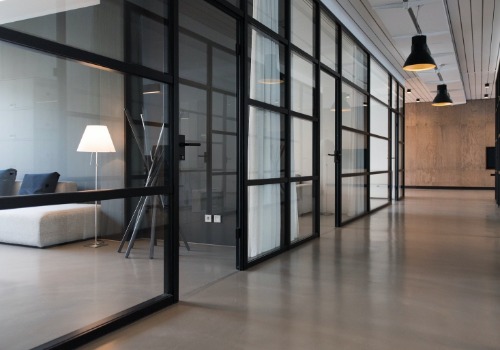Our Director of Broking and Board member of the Society of Insurance Broking, Stuart Stead, considers the insurance impact of
temporarily unoccupied properties.
The outbreak of Covid-19 and the subsequent measures imposed by the UK government have clearly had an impact for most people and businesses.
From an insurance perspective, there has been much discussion and debate around coverage afforded by business interruption insurance policies and whether or not insurers ever had any intention to cover pandemic situations.
However, placed alongside the topic of whether policies provide such coverage are other matters which brokers need to be aware of around vacant buildings and unoccupied properties.
While the focus of many policyholders and their respective insurance brokers may continue to be around business interruption cover, it is important to ensure that sound advice and practical measures are taken to ensure that assets continue to enjoy property damage insurance.
Conditions policyholders should be aware of
Policyholders need to be made aware of conditions that may prejudice their rights to claim under their policy if they fail to adhere to them, as most if not all property damage policies have a number of conditions and requirements that need to be considered once a property becomes unoccupied for a certain period of time.
Most policies stipulate that when a property becomes vacant and/or unoccupied for a period in excess of 30 days the insurer must be notified. It is then usual for other conditions to come into play as well as a potential restriction in cover to very limited perils. Premiums may also be inflated at this point.
With the current pandemic situation, many properties have become temporarily unoccupied either due to the furloughing of workforce, an outbreak of Covid-19 at the premises, or where policyholders have taken government advice to close the premises.
How long will properties be unoccupied for?
As the rolling “lockdown” continues, it could be many more weeks before such properties are once again occupied. Therefore, with the bulk of insurance policies stipulating a 30 days period as being the trigger point for both notification and further conditions and restrictions, this may leave policyholders in a difficult position through no fault of their own.
Thankfully most insurers have automatically extended the 30-day period to 60 days and beyond as well as waiving their rights to have such situations notified to them which is welcome news to insurance brokers and policyholders alike. However, it is important that each policy is checked and the relevant insurer’s periodic update announcements reviewed regularly to ensure policyholders are given the most up to date information. This will ensure that clients will not be left with potential gaps in cover.
Once a property becomes vacant and/or unoccupied, while full perils may still be maintained by insurers extending their standard wording, it is good practice to provide policyholders with advice on how to protect their assets.
Reducing risk to protect unoccupied properties
A number of common sense and practical measures can be taken to ensure that as far as reasonably practicable properties are suitably protected and some of these are listed below:
Prior to vacating, has a thorough inspection taken place and a risk assessment undertaken?
- Has this identified security weaknesses?
- Are windows/doors/openings adequately locked/protected?
- Are car park areas secured to prevent access by travellers?
- Do the premises require power for heating/alarms etc?
- If not can the power source be switched off and isolated?
- Is water required and if not can internal systems containing water be drained down and turned off at the mains to prevent water leaks?
- Have all combustible materials been removed from the exterior of the property to prevent arson?
- Are letter boxes sealed and have alternative premises selected to have mail redirected?
- Have all fire and security alarms been tested and set?
As policies fall due for renewal during the coming months, insurers will want to know whether there are limited activities being undertaken at properties or whether these are simply vacant/unoccupied. This is often a time which insurers may seek to reduce cover and or increase rates, however, with the current situation it is hoped that they will adopt a sympathetic approach. With policyholders’ and insurers’ own staff working from home, there can be delays in providing updated renewal information to insurers and receiving renewal terms, so early discussions are required with both parties.
Other things to consider
- Sprinkler conditions – Sprinklered risks usual carry conditions requiring weekly testing of the system including bells and pumps. Check that the insurer has relaxed their stance on such requirements.
- Homeworkers – with many businesses having their workforce operating from home, many employees will have business equipment to enable them to undertake their work such as chairs, desks, stationary, computers, printers and the like. Has the policy been extended?
Hopefully this covers some straightforward and useful information to help ensure that, as insurance brokers, we continue to offer professional advice at a time of uncertainty.
This article was first published in the Society of Insurance Broking’s Spring 2020 issue of BRisk.



